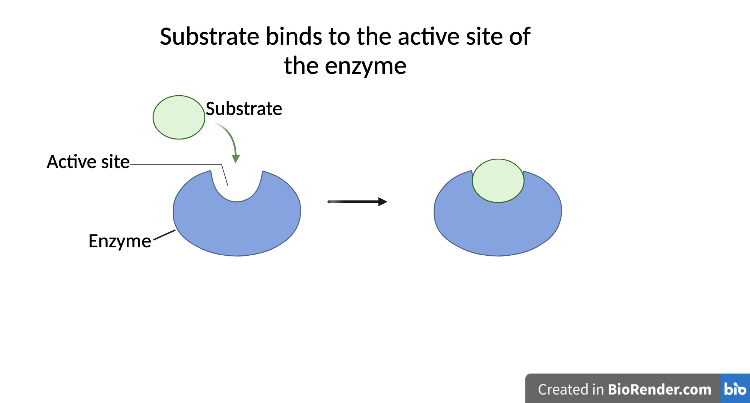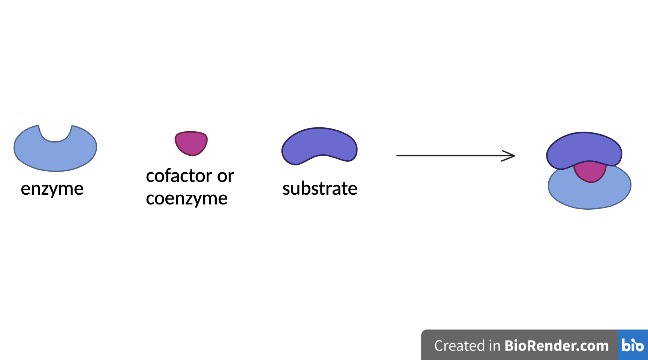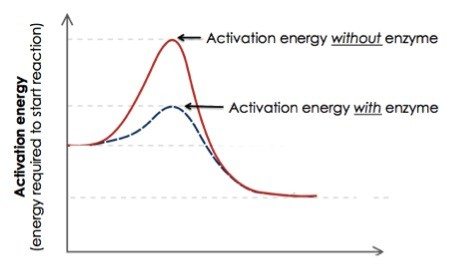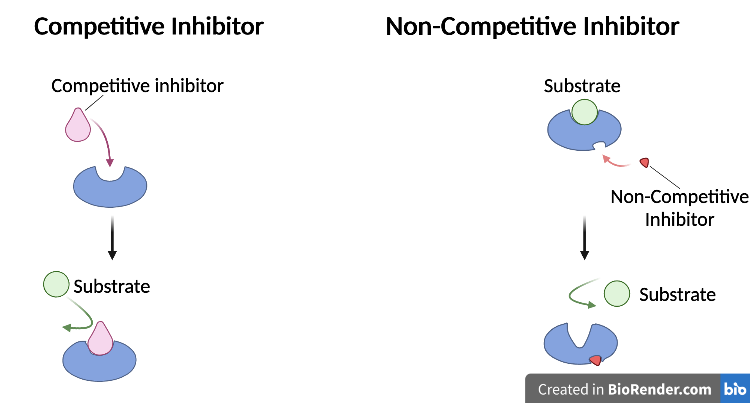ENZYMES
Enzymes are required for metabolism, without enzymes reactions would be too slow to sustain life. Enzymes are biological catalysts; they increase the rate of one specific chemical reaction. Enzymes are not changed or consumed during catalysis. Enzymes can only increase the rate of a chemical reaction that would happen without the enzyme. The substrate is the substance the enzyme acts on. The active site is the part of the enzyme that binds the substrate.

Some enzymes require cofactors to function. Cofactors can be inorganic ions (iron, copper, zinc) or organic molecules (known as coenzymes).

activation energy
How do enzymes increase the rate of one specific chemical reaction? Enzymes increase the rate of one specific chemical reaction by decreasing the activation energy. The activation energy is the amount of energy required for a chemical reaction to proceed.

enzyme activity
There are several ways to affect the activity of an enzyme. Most enzymes are made of protein. Temperature and pH can denature (unfold) the enzyme causing a change in the shape of the active site. The enzyme can no longer function. Increasing the substrate concentration only increases enzyme activity up to a point; eventually there are not enough enzymes available to bind the additional substrate. Competitive inhibitors bind to the enzymes active site therefore competing with the substrate for the active site. Non-competitive inhibitors bind a site outside the active site and by binding change the shape of the active site so the substrate can no longer bind to the enzyme.

